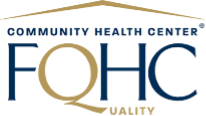Inland Behavioral and Health Services and The Legal Aid Society of San Bernardino have partnered to create the Inland Empire Medical-Legal Partnership (IE-MLP). Together we are working to improve the health outcomes of vulnerable patients in the Inland Empire by providing legal services to eligible patients in need.

Since 2015, The Inland Empire Medical-Legal Partnership has been addressing various social determinants of health that have significant impact on the health and well-being of individuals and communities. Many of these social conditions can be traced to laws that are unfairly applied or under-enforced, often leading to the improper denial of services and benefits that are designed to help vulnerable people. These social determinants of health all constitute health-harming legal needs and they cannot be treated effectively without some level of legal intervention. Ask your provider about a medical legal partnership (MLP) referral today!
MLP’S address legal needs that have a negative effect on a person’s health. These legal needs can have a big impact on the health and well-being of individuals and communities.
Since the main focus of MLP is to address health harming legal issues that negatively impact a patient’s health:
IE-MLP is a collaboration between Inland Behavioral & Health Services (IBHS-Your health provider) & The Legal Aid Society of San Bernardino (LASSB). The two organizations are working together to improve the health outcomes of our health centers patients.
Patients are referred to the MLP by their healthcare provider at one of our health centers or self-referred. Patients then meet with an attorney on-site.
Current patients pay no additional fees for services provided by
the IE-MLP.
There are five main areas that can impact health and require legal care or intervention. We call them the I-HELP® areas.
The IE-MLP Staff will help you understand your rights as a tenant. The goal is to make sure that your landlord is fulfilling his/her/their obligations under the laws of the State of California.
Landlords are required to keep their buildings fit for human occupancy. Any conditions not caused by the tenant that make the rented residence unfit for human occupancy are the responsibility of your landlord.
Our attorneys are here to help you understand your rights and resolve legal issues with your landlord. During your appointment, you will have the opportunity to express habitability issues and other concerns.
Research shows that unmet social needs can significantly impact health outcomes, particularly in our underserved and communities. Recognizing this, our mission is to enhance the well-being and happiness of individuals and families within our communities. We strive to create a comprehensive support system that addresses not just health issues, but the social determinants that influence them.
At Inland Behavioral and Health Services, our Utilization Management Team are dedicated to offering a wide range of support services essential for improving your quality of life. We assist with critical needs such as housing, food security, transportation, employment opportunities, benefits enrollment, and various social services.
To achieve this goal, we have developed strong partnerships with local organizations that specialize in various social services, including financial assistance, job training programs, and health resources. These collaborations allow us to provide a holistic approach to care, ensuring that you and your family have access to the necessary tools and services for stability and success.
At Inland Behavioral and Health Services, we conduct thorough assessments to understand each individual’s unique needs. Our team is dedicated to connecting you with the appropriate resources and support, empowering you to lead a healthier and more fulfilling life. Together, we can build a stronger, more resilient community that fosters opportunity and well-being for everyone.
Diapers are a crucial yet often overlooked necessity for families, significantly affecting their budgets. In San Bernardino County, families can spend about 14% of their annual income on diapers, which poses a considerable challenge, especially for lower-income households. A 2020 Community Indicators Report revealed that nearly 40% of single mothers with young children live in poverty, highlighting the urgency for support in our community.
Through our partnership with the Community Action Partnership of San Bernardino County (CAPSBC) Diaper Bank, we aim to help our patients’ families save money that can be redirected toward other essential household needs. By providing diapers, we strive to ease their financial burden and support their overall well-being.
Our monthly Diaper Distribution Program is designed to assist all families in need, and these statistics emphasize the importance of our work. On average, families spend around $50 each month on diapers, totaling approximately $600 annually. This financial relief can make a meaningful difference, allowing families to focus on what truly matters: caring for their little ones.
Offering patient transportation is essential for ensuring that everyone can access the healthcare they need. Many patients face obstacles like lack of a personal vehicle, financial challenges, or mobility issues that make it difficult to reach medical appointments. By providing reliable transportation options, our healthcare providers can ensure that our patients attend essential appointments, receive timely treatments, and helping them stay on track with their health journeys.
By providing transportation services support not only leads to better health outcomes but also shows our commitment to meeting the unique needs of our patients. Ultimately, by making transportation accessible, we help create a more equitable healthcare experience for all patients, allowing them to prioritize their health without added stress. Contact us for more information and other transportation resources we offer.








Inland Behavioral and Health Services is a community-based non-profit Federally Qualified Healthcare Provider with three locations in the city of San Bernardino and one in the city of Banning.
IBHS, Inc., is an Independent 501(c)3 non-profit community health center, governed by an independent and patient majority Board of Directors.
IBHS, Inc., is a Federally Qualified Health Center (FQHC) program grantee under 42 U.S. Code § 254b and receives funding from the US Department of Health and Human Services.
IBHS, Inc., has a Federal Public Health Service (PHS) deemed status with respect to certain health or health-related claims (including medical malpractice claims) for itself and its covered individuals.
© Copyright 2025 Inland Behavioral Heath and Service. All Rights Reserved